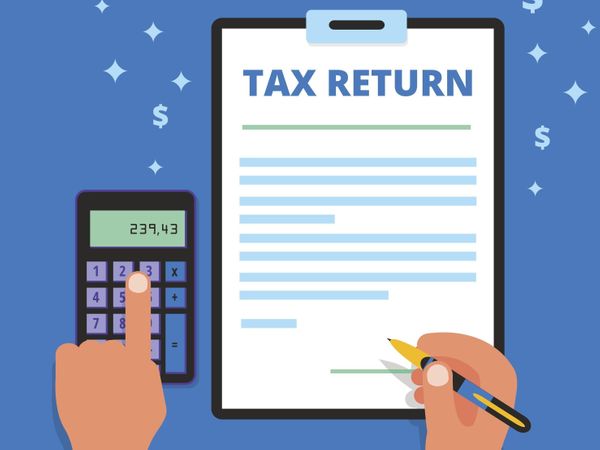![]()
The 30 September deadline for filing belated or revised income tax returns (ITR) for assessment year 2019-20 (financial year 2018-19) is fast approaching.
Belated ITR is the one filed after the due date, which is generally 31 July of any assessment year. For FY19, the due date of filing ITR was 31 August and the assessment year was till March 2020. Revised ITR is filed when you want to make a change or correction in your original ITR filed.
The last date for filing belated or revised ITR for AY20 has already been extended three times this year in the wake of the covid-19-induced lockdown. It was first postponed to 30 June 2020 and then to 31 July 2020. So, it is better for taxpayers to file their belated or revised ITR as soon as possible and not wait till the last minute in the hope of getting another extension.
Here are some other reasons why you should file your belated return at the earliest and not delay it further. We also tell you what happens if you don’t file your returns at all.
No relief
Although the date of filing belated ITR has been extended, there is no relief from the late filing penalties and interest on unpaid tax dues.
In case the taxpayer misses the ITR due date (which was 31 August for FY19), a flat penalty of ₹5,000 will be levied when you file belated returns till 31 December, and ₹10,000 if you file between 31 December and 31 March.
For small taxpayers with income of up to ₹5 lakh, a penalty of ₹1,000 is applicable in case of filing belated ITR till 31 March. Even if you file the belated return for FY19 by 30 September, you will have to pay a late filing penalty of ₹10,000.
In case you had any tax dues while filing belated ITR, you will have to pay interest on the outstanding amount at 1% for each month of delay starting 1 September 2019.
Also, if you are liable to pay any advance tax, you will have to pay interest on the delay or default on advance tax payment under the respective sections of the Income-tax Act, 1961.
“If the taxpayer has not paid advance tax for FY19 or discharged less than 90% of their liability by advance tax, an additional interest at the rate of 1% per month or part of the month will be levied till the date the entire tax liability has been paid. Tax liability is calculated on the time of filing ITR,” said Kapil Rana, founder and chairman, HostBooks Ltd, an accountancy firm.
Delay in refunds
In case you have a tax refund due, the payment will be delayed as the tax department will start processing the refunds only after you file the belated return.
The tax department pays interest on refunds from the date of filing of return in case of late returns. So in case you delay filing the belated return, you will lose on the interest payment on your tax refund, if any.
If you don’t file ITR
In case you don’t file belated ITR within the due dates, the income tax department can send you a notice.
“If you have taxable income and do not file ITR, you may end up paying penalty for concealment of income. In the extreme case, you may receive a notice for prosecution,” said Vivek Jalan, partner at Tax Connect Advisory Services LLP.
If the deadline is not extended, it may be your last chance to file ITR for FY19 as the tax department doesn’t allow filing of return after the due date.
Also, remember that there is a lengthy process to file belated ITR after the due date and is allowed only in special cases.
We are providing practical training (Labor Laws, Payroll, Salary Structure, PF-ESI Challan) and Labor Law, Payroll Consultant Service & more:
- HR-Generalist-Practical-Training: https://oneclik.in/hr-generalist-practical-training/ (PF, ESI, Bonus, Payroll & more)
- Labour-Law-Practical-Training: https://oneclik.in/labour-law-practical-training/ (Factory, Contact Labor, Maternity Act & more)
- PF – ESI Consultant Service: https://oneclik.in/pf-esi-consultant-service/
- Labor Law, Compliance & HR – Payroll Management
- Advance Excel Practical Training
To Get Latest HR, IR, Labor Law Updates, Case Studies & Regular Updates: (Join us on Social Media)
- Telegram Channel: “One Clik”
- Whatsapp Group: https://wa.me/919033016939
- Facebook: One Clik
- Linkedin: One Clik
- Instagram: oneclik_hr_management
- YouTube: One Clik

